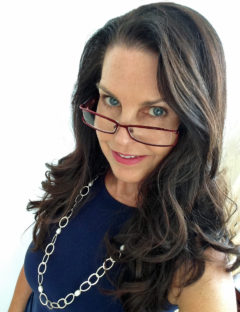
FLAGSTAFF, Ariz. – A sharp pain startled 67-year-old Tully Yellowman from his sleep. He sat up and clutched his chest. Like any loving wife, Susie sensed his stirring and woke up immediately. “It’s nothing,” Yellowman said. But one look told Susie it was definitely something.
Yellowman had felt the ache before, but ignored it. Like many people, Yellowman thought if he didn’t go to the doctor, nothing would be wrong. But when it came to her husband’s health, Susie wanted answers. They immediately made an appointment for a check-up at Indian Health Services in Chinle.
An ultrasound and stress test showed blockages in the arteries of Yellowman’s heart, so they were referred to Flagstaff Medical Center. The need for Native American patients to travel outside of Northern Arizona for their heart care has been eliminated through an expanded partnership between Flagstaff Medical Center, The Heart and Vascular Center of Northern Arizona and Indian Health Service’s Native American Cardiology Program.
The new collaboration significantly improves the level of service for Native American patients. It includes outpatient cardiology care and diagnostic testing; inpatient care and hospital-based diagnostic and inter-
ventional procedures; cardiothoracic and vascular surgery; and telephone and telemedicine consultations for Indian Health Service’s primary care physicians throughout the region.
The physicians at the Heart and Vascular Center and the Native American Cardiology program are located next door to each other at FMC, which offers comprehensive heart care for patients in one location.
Within days, Yellowman met with Steven Peterson, M.D., FMC’s cardiothoracic (open heart) and vascular surgeon. Dr. Peterson explained to Yellowman that he needed coronary artery bypass graft surgery, more commonly referred to as bypass surgery.
The surgery uses vein grafts, usually from the patient’s legs, to bypass the clogged arteries on theoutside of the heart.
Yellowman sat down with his family to discuss his heart problems. He wanted to reassure his wife, three sons, a daughter and 15 grandchildren. “I told them, ‘The best chance for me is to have the surgery and that I wasn’t scared,'” Yellowman said. “After I met Dr. Peterson, I was convinced he really knows what he is doing, and since I had my knee replaced at FMC six years ago, I already knew FMC was a great hospital.”
When Yellowman had his surgery in December, he became FMC’s 1,000th cardiovascular surgery patient. Just a few days after undergoing quintuple (five bypass grafts) coronary artery bypass grafts, he was already preparing to be discharged from the hospital. “I was surprised and honored to hear I was the 1,000th patient,” Yellowman said.
Within a week after surgery, the heart patient was doing his exercises in Physical Therapy. “I have my appetite back, I’m happy and so excited to be feeling better that they keep telling me to slow down,” Yellowman said. The former house painter and hobby mechanic laughed and added, “I am thinking about doing a lot of arts and crafts again – making jewelry, headbands and belts, weaving, sand painting – everything.”
FMC became the first hospital outside the Phoenix and Tucson metropolitan areas to offer open heart surgery when its program launched in August 2004. Cardiothoracic and vascular surgery procedures performed at FMC include coronary artery bypass grafting, valve repair and replacement, Maze procedure for atrial fibrillation, complex lung resections, removal of intravascular tumors and the repair of penetrating chest trauma.
“FMC offers the most innovative and patient-centered cardiovascular programs in the region,” Dr. Peterson said. “Our comprehensive program provides heart patients the latest in technology and advancements combined with a specially trained team who are dedicated to providing the very best heart care.”
At FMC, some patients may be candidates for heart surgery through minimally invasive techniques that do not require large incisions or the chest to be opened as in traditional open heart surgery.
Yellowman says he is glad he chose to have the surgery and he is glad he went to Flagstaff Medical Center. “The staff was always anticipating my needs and encouraging me to get on with my life. I am very thankful to everyone and so glad I said, ‘Yes’ to surgery at FMC.” Now, Yellowman has many more days to celebrate with his family.

